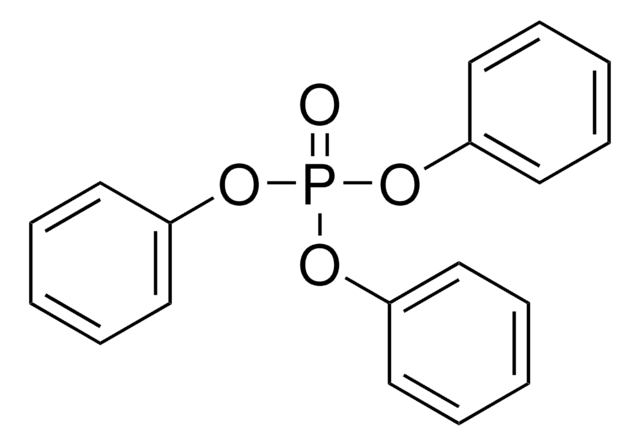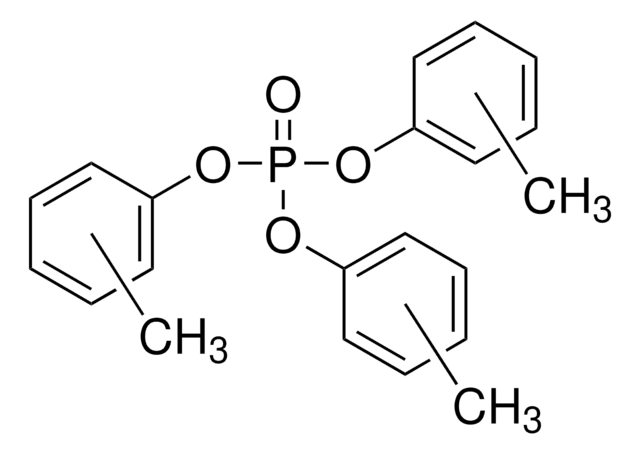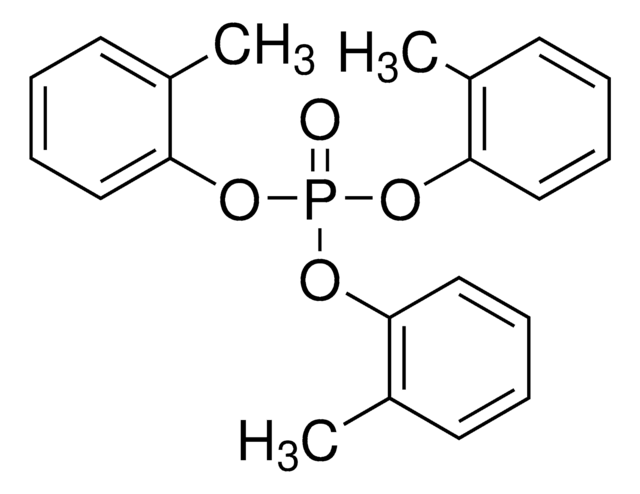About This Item
Recommended Products
grade
analytical standard
Quality Level
vapor pressure
1.3 mmHg ( 200 °C)
CofA
current certificate can be downloaded
packaging
ampule of 1000 mg
technique(s)
HPLC: suitable
gas chromatography (GC): suitable
bp
244 °C/10 mmHg (lit.)
mp
48-50 °C (lit.)
solubility
H2O: 0.0019 g/L at 20 °C
application(s)
environmental
format
neat
storage temp.
2-30°C
SMILES string
O=P(Oc1ccccc1)(Oc2ccccc2)Oc3ccccc3
InChI
1S/C18H15O4P/c19-23(20-16-10-4-1-5-11-16,21-17-12-6-2-7-13-17)22-18-14-8-3-9-15-18/h1-15H
InChI key
XZZNDPSIHUTMOC-UHFFFAOYSA-N
Looking for similar products? Visit Product Comparison Guide
Application
signalword
Warning
hcodes
pcodes
Hazard Classifications
Aquatic Acute 1 - Aquatic Chronic 1
Storage Class
11 - Combustible Solids
wgk_germany
WGK 2
flash_point_f
428.0 °F - closed cup
flash_point_c
220 °C - closed cup
ppe
Eyeshields, Gloves
Choose from one of the most recent versions:
Already Own This Product?
Find documentation for the products that you have recently purchased in the Document Library.
Customers Also Viewed
Our team of scientists has experience in all areas of research including Life Science, Material Science, Chemical Synthesis, Chromatography, Analytical and many others.
Contact Technical Service








